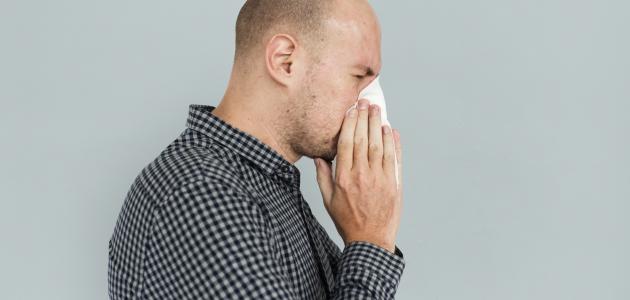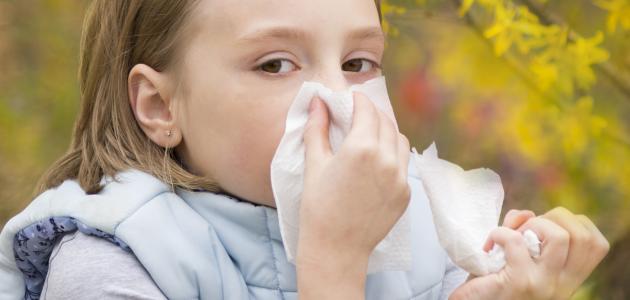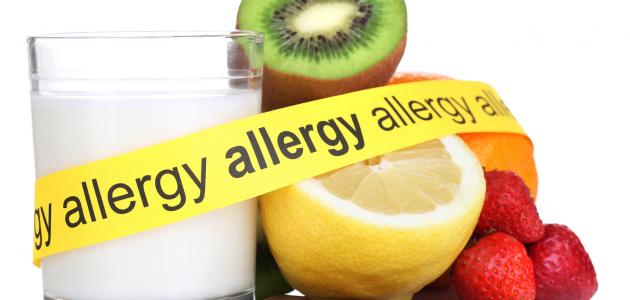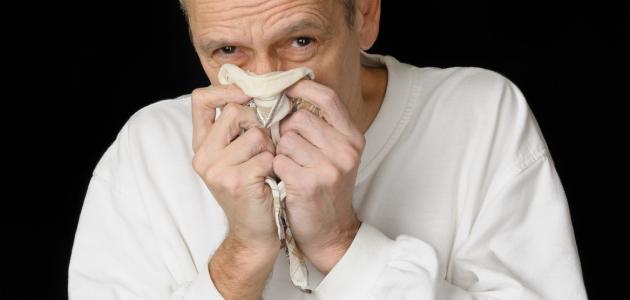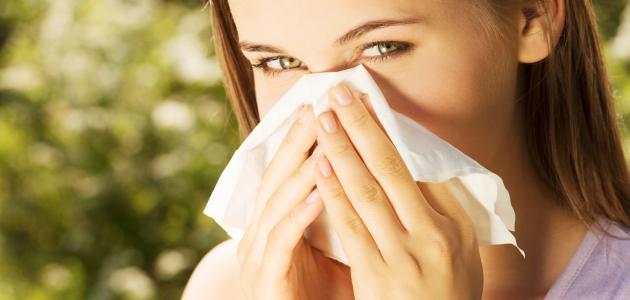Contents
Allergic rhinitis
Allergic rhinitis is known medically as hay fever, and it causes symptoms similar to those that usually accompany a cold . Runny nose, congestion, feeling itchy in the eyes, sneezing, and a feeling of high pressure in the sinuses. In general, some people develop allergic rhinitis as a result of the immune system reaction that leads to inflammation of the inner layer in the nose, as a result of exposure to one of the allergens spread in indoor or outdoor spaces. Allergies usually cause distress and inconvenience for the sufferer, in addition to their effect on carrying out normal daily functions, disturbing sleep , and sensitivity can increase the risk of developing some health disorders: such as deterioration of the health status of the asthma suffererSinusitis , otitis media , and adenoids . [1] [2] [3]
Permanent allergies and temporary allergies
The immune system of some people senses and exaggerates the immune response when a person is exposed to certain substances that are naturally present in the surrounding environment, which do not normally cause any health problems for most people. The sensitivity resulting from this immune response can be classified into two types: permanent and temporary. [4] [5]
Permanent sensitivity
In fact, people with permanent allergies often suffer from symptoms associated with it throughout the year, and it is usually caused by dust mites , animal hair or dander, cockroaches , or mold . It should be noted that some people with persistent allergies may have symptoms of allergies worse in some specific seasons of the year. [4] [5]
Temporary sensitivity
The symptoms of temporary allergies usually appear during the spring or summer period, or when the fall begins, as a result of exposure to tree or weed pollen that is often dispersed in the air during these periods. It should be noted that some types of pollen, which are usually seasonal and temporary in some areas, may be present continuously in other areas. Such as areas with a warm climate , and some patients may suffer from more than one type of temporary allergy, which leads to symptoms and signs of allergy throughout the year. [4] [5] [6]
Treating permanent allergies and temporary allergies
The treatment of allergic rhinitis depends on classifying it and determining its type in terms of severity and duration of symptoms, in addition to classifying allergies into temporary and permanent, the severity is determined; The sensitivity is considered mild in the event that the patient does not suffer from sleep disturbances, or problems in carrying out normal daily activities, as for the severe symptoms, they are cause for discomfort, and lead to difficulty in the patient's sleep, and his activities and functions from work or study. [6]
Avoidance of allergens and substances is the most important and first step of treatment, but in some cases, avoidance may not be sufficient to prevent the emergence of symptoms, especially if the causative agent is present in the air, which makes avoiding it difficult. There are many home treatment options and medications used to relieve allergy symptoms. [5] [7]
Avoid triggers
The following is a statement of some of the most important tips that the sufferer is usually advised to follow to avoid exposure to allergens: such as pollen, cockroaches, animal dander , and other causes that can be found in indoor or outdoor places: [5] [8]
- Close doors and windows during pollen seasons, and avoid spreading laundry outside during those times.
- Use air-conditioning in the car and at home and use allergy filters if possible.
- Staying home during dry and windy days, and avoiding outdoor activities during the early morning hours; The pollen is at its highest during this period.
- Washing sheets and blankets at high temperatures.
- Use insecticides that kill dust mites and are used indoors.
- Washing dishes and disposing of waste on a daily basis.
- Keep food in airtight containers.
- Avoid the presence of pets inside the house, and if there are any, they must be cleaned twice a week.
Drug therapy
In general, if avoiding the allergens is not sufficient to relieve their symptoms, the doctor may recommend some drug treatments to relieve nasal congestion, sneezing, and runny nose. The following is a list of some of the most important medicinal treatments: [5] [7]
- Intranasal corticosteroids : This type of treatment is the most effective in treating allergic rhinitis. This is because corticosteroids have an effect on inflammation and immune function. These intranasal medications relieve nasal congestion , sneezing, itching and runny nose. It should be noted the possibility of using these remedies for a long time; They are designed to avoid the side effects that often accompany other forms of corticosteroid treatment: such as injections and oral pills.
- Decongestants: Kaloksimitasulan , and Alvenilfren , and pseudoephedrine-ephedrine . These drugs are used in the treatment of nasal congestion and high pressure in the sinuses , and it should be noted the need to avoid the use of decongestants for more than three days. This is due to the possibility that the patient will experience an adverse effect after stopping taking it, meaning that the symptoms will return to worse after cutting them.
- Antihistamines: Anti-histamines usually cause the body's secretion of histamines to irritate nasal allergies, which in turn leads to the appearance of various symptoms. Antihistamines stop the body from producing this irritant substance. It is possible that taking these drugs may lead to some side effects: such as drowsiness, fatigue, dry mouth, eyes, and nose, but choosing some types of antihistamines may be accompanied by less exposure to these side effects; As second-generation antihistamines , including: Fexofenadine , Cetrizine , and Loratidine . [5] [9]
References
- ↑ "Hay fever symptoms & causes" , www.mayoclinic.org , Retrieved 1-3-2019. Edited.
- ↑ "Overview - Allergic rhinitis" , www.nhs.uk , Retrieved 1-3-2019. Edited.
- ↑ "Allergic Rhinitis" , emedicine.medscape.com , Retrieved 1-3-2019. Edited.
- ^ A b t "Rhinitis (nasal Allergies)" , Www.aafa.org , Retrieved 1-3-2019. Edited.
- ^ A b t w c h x "Allergic Rhinitis" , Acaai.org , Retrieved 1-3-2019. Edited.
- ^ A b "Allergic Rhinitis" , Aacijournal.biomedcentral.com , Retrieved 1-3-2019. Edited.
- ^ A b "Allergic Rhinitis" , Www.healthline.com , Retrieved 1-3-2019. Edited.
- ↑ "Hay fever Diagnosis & treatment" , www.mayoclinic.org , Retrieved 1-3-2019. Edited.
- ↑ "Second-generation antihistamines: a comparative review." , www.ncbi.nlm.nih.gov , Retrieved 1-3-2019. Edited.
